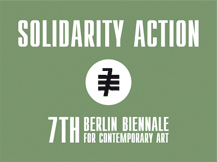When I left Palestine Jad gave me a little composition with dry flowers. Glued onto colored construction paper, some of the flowers were already broken, the petals crumbling. I thanked him politely, almost missing the days when Jad was but half a man, slumped over a bar: in those days, between one binge and the next, he scribbled poems and made drawings. But Jad quit drinking, a girl saved his life, that life that was hanging by a thread. Most of his friends had died in the struggle, Jad drank like someone who has survived unwillingly. Like someone who always sees his dead friends around him. That was how Jad saw the cut flowers on his kitchen table. This composition was an attempt at mourning, a tribute to those who had fallen by the wayside. But Jad wasn’t able to make more than a sketch of a picture, five years ago. A picture I am holding in my hands, a picture in which the flowers are crumbling. In his kitchen there are two plastic bags he can no longer touch, two bags full of dried flowers.
I am happy to have grown up in a society in which the artist can create, almost in total freedom, and play. It is important. Every society needs play to evolve, just as a child needs to play in order to learn. We need to protect this space of play, of civilization. To protect its independence. But we also need to assert its capacity to radiate outward. I wonder if today, in the Occident, art is still a child’s game, a serious, voluntary, at times dangerous game. Or if it has become the pastime of some old men, sheltered in a rest home. Old men can make beautyful pictures with dried flowers.
PASCAL JANOVJAK
Writer. Member of the Istituto Svizzero di Roma, 2011/2012. Lives and works in Rome.


